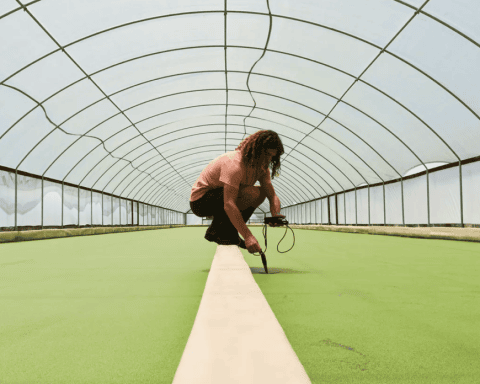Don’t mess with the people’s food. It’s a lesson that leaders have learned over the centuries, as governments have fallen after the price of or lack of food have helped spark revolutions. So it’s no wonder that food systems – and livestock farming in particular – have been a bit of a third rail of climate policy.
Agriculture emits around 16 gigatons of greenhouse gases a year – about a third of the world’s total emissions. Animal farming alone is responsible for 19% of all emissions, according to a 2021 study (although estimates vary). Simply shifting diets to be less heavy on meat and dairy could reduce food-related emissions by 49%. And yet very limited progress has been made on the issue as most politicians steer clear of critiquing the carbon footprint of, well, steers.
Wading into this hot-button arena is an institution that has generally kept quiet on this front: a new paper by the World Bank lays out a roadmap for how the world can substantially reduce the emissions from food systems partly by redirecting the subsidies given to the meat and dairy industries.
“The narrative is clear: to protect our planet, we need to transform the way we produce and consume food,” writes Axel van Trotsenburg, a senior managing director for development policy and partnerships at the World Bank, in a forward to the paper.
The paper’s authors say that reallocating subsidies for meat and dairy toward lower-carbon plant-based alternatives is the most cost-effective way for high-income countries to reduce demand for meat and dairy products that are harming the planet.
Alternative burger companies like Beyond Meat and Impossible Foods have struggled to bring the price of their products down close to what consumers pay for actual meat. But such a shift in subsidies could potentially reverse that, making plant-based products the cheaper option.
“The full cost pricing of animal-sourced food to reflect its true planetary costs would make low-emission food options more competitive,” the report says.
The food system must be fixed because it is making the planet ill.
In the United States, the government provides US$38 billion a year in subsidies to meat and dairy. In 2021, the Canadian government allocated $1.7 billion in subsidies for animal agriculture.
The paper says the annual investments needed to transition food systems will also need to increase 18 times, to US$260 billion, to cut emissions in half by 2030 and keep the world on track to be net-zero by 2050. It recommends that high-income countries do more to help the food industry use renewable energy and give more financial and technical support to lower-income countries to help them adopt the same changes.
Benefits of a sustainable food system
In addition to cutting emissions, the health, economic and environmental benefits from such a transition could amount to US$4.3 trillion in 2030. The costs of the transformation are estimated to be less than half the amount the world currently spends on agricultural subsidies, the paper says.
The report also included chicken as a lower-emissions alternative to other types of meats, but climate advocates say this might send the wrong message. “I know there are different kinds of calculations between different kinds of meats,” Sini Eräjää, Greenpeace’s EU food campaigner, told Climate Home News, “[but] first and foremost, we need to change to more plant-based diets.”
The World Bank released the paper while countries party to the Paris Agreement are working to update their climate plans. But governments don’t need to wait until the plans are due in 2025 to start taking action.
“The food system must be fixed because it is making the planet ill and is a big slice of the climate change pie,” the report says. “There is action that can be taken now to make agrifood a bigger contributor to overcoming climate change and healing the planet. These actions are readily available and affordable.





